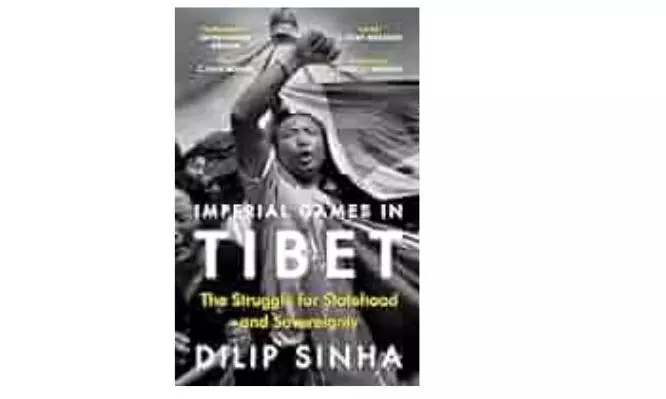Book Review | When India let Tibet down

| Time and again history has shown that great powers tend to shape the world according to their interests and rarely on the basis of moral precepts. This, as former diplomat and author Dilip Sinha proves in his book, is precisely what is responsible for the tragedy of Tibet, a nation invaded by a powerful neighbour and abandoned by the world community. Even Tibet’s traditional friend, India, badly let down the Tibetans when they most needed assistance and a voice to tell the wider world of their calamity. |
Mr Sinha describes how each of the great powers involved in Asia through history treated Tibet, China and India as well as the other related kingdoms of East Turkestan and Mongolia. Put very simply, Britain found itself incapable of fully assimilating or controlling Tibet the way it did India. China too was a distant and vast kingdom that required more power to rule than Britain could expend. Britain which constantly worried about Russian ingress into every part of Asia, including India and China, felt it was best to prop up Beijing’s authority over these two regions and thereby pre-empt any Russian creep into India’s neighbourhood.
The court at Beijing which traditionally had only limited authority over Tibet and enjoyed a special priest-monarchical relationship was thus thrust into the role of protector and suzerain of Tibet and Xinjiang.
The Communists led by Chairman Mao who took control of China after the Second World War believed that any region in the past, no matter how distant, that had once paid tribute to China’s imperial court was now an integral part of their country. Tibet had no hope of remaining independent.
India was the first country Tibet turned to for help, before and after the Chinese invasion. But India’s Prime Minister Nehru in his wisdom would have nothing to do with it. He even refused to raise the matter in the UN General Assembly after the invasion. “There was internal disagreement over India’s policy”, writes Sinha. Nehru’s foreign secretary Girija Shankar Bajpai “was unhappy with Nehru’s decision believing it was not in accordance with India’s earlier decision to support Tibet…and even contemplated resigning.” Ultimately, it was tiny El Salvador that came to the rescue of the Tibetans in the United Nations, pointing out “the peaceful nation of Tibet had been invaded without provocation” and “called for the formation of a General Assembly committee to recommend measures”.
India came to the support of Tibet only in 1965. This time in the UN, “India voted in favour, with its representative accusing China of genocide and violating the seventeen-article agreement of 1951. This change became possible because China had invaded India three years earlier, and there was a new leadership in India: Jawaharlal Nehru had died the previous year and Lal Bahadur Shastri had succeeded him.” By then of course it was too late.
Imperial Games in Tibet: The Struggle for Statehood and Sovereignty
By Dilip Sinha
Pan Macmillan India
pp. 304; Rs 599
